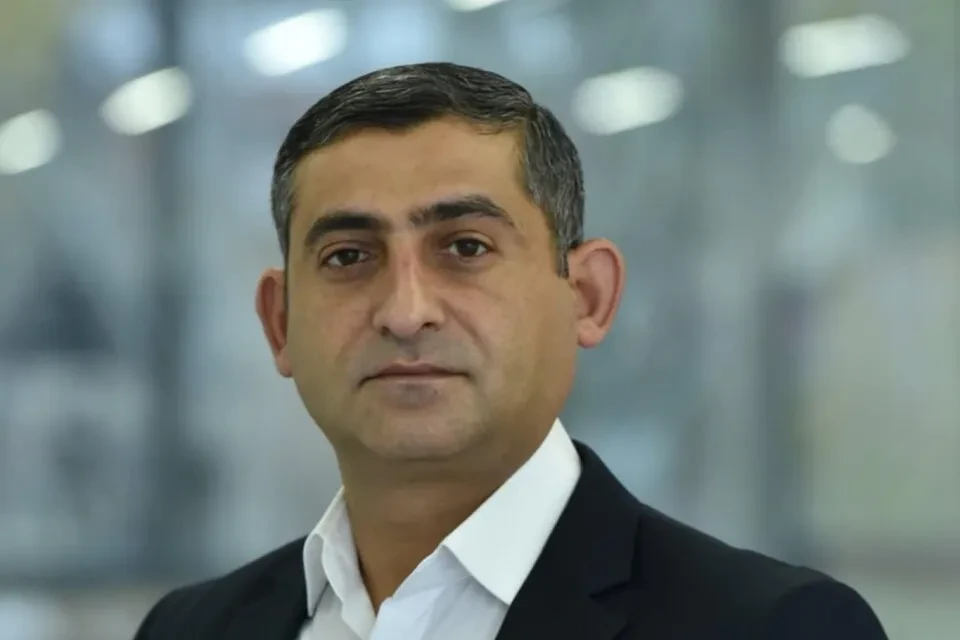US takes constructive position on Iran's nuclear program, Tehran also optimistic – Expert
7 minute read

Expert on Iran affairs, Nver Davtyan believes that the recent meeting between the United States and Iran in Oman, despite the harsh rhetoric preceding the negotiations, reflects a mutual readiness to adopt constructive approaches and seek solutions to contentious issues.
In an interview with Armenpress, Davtyan discussed the Iranian-American talks held in Oman and the potential for an agreement on Iran's nuclear program.

“Initially, the United States appeared to take an ultimatum-like stance, as demonstrated by a letter it sent to the Iranian side. However, Iran’s response indicated that there is, in fact, a common understanding between the parties and a willingness to initiate and advance the negotiation process,” he said.
He noted that while early statements suggested direct talks, the Omani meeting was held with mediation.
“The nature of the negotiations and the use of written communication through the mediation of the Omani Foreign Minister show that, contrary to earlier statements, the United States is now demonstrating a more constructive approach on the issue of Iran’s nuclear program,” Davtyan added.
He also pointed to several factors contributing to the more constructive atmosphere.
“First and foremost, the legal factor is important. There is no legal basis to accuse Iran of developing a nuclear program aimed at producing nuclear weapons. Without such grounds and overlooking the interests of the U.S. taxpayers, it would be difficult for the United States to justify dragging the country into a war with a state like Iran,” Davtyan explained.
He emphasized that such a move would not serve Washington’s interests, either from the perspective of the security of American military bases in the Middle East or in terms of broader economic considerations.
According to Iranologist Nver Davtyan, considering the current geopolitical and legal factors, it is in the United States’ interest to pursue constructive negotiations with Iran. While the positive reactions from international media, the negotiating parties, and Oman are promising, he has warned that another key factor should not be overlooked.
“In this context, Israel’s position must be considered. Publications in the Israeli press and analytical centers clearly suggest that a potential agreement between Iran and the US on the nuclear program does not align with Israel’s interests. Therefore, it is not out of the question that the Israeli lobby may attempt to influence U.S. policy to prevent the negotiations from reaching a conclusion,” Davtyan said.
“The real strategic target for the United States is not Iran, but China, with which it is already engaged in a so-called economic war. Spending most of its resources toward Iran’s nuclear program or risking its positions in the Middle East while sidelining the China issue is not in the United States' interest. Thus, a positive outcome to the current negotiation process may be assumed,” he noted.
However, Davtyan also pointed to potential obstacles. “The influence and pressure of the Jewish lobby are predictable, especially considering that within the Trump administration, the political wings of the Secretary of State and the U.S. President’s envoy for the Middle East hold differing positions. Political options for normalizing relations with Iran remain contradictory,” he said.
Davtyan noted that under the Biden administration and before it, Iran had demanded firm guarantees so that in the event of a possible agreement, regardless of who is president in the US, Washngton would be obliged to implement the agreement. In addition, Iran had previously been asked to scale back not only its nuclear activities but also its missile industry—demands that are currently not observed.
“Iran now supports a more transparent, albeit mediated, dialogue and has expressed its readiness to continue negotiations, despite concerns on both sides. To address American concerns, Iran is prepared to allow the International Atomic Energy Agency (IAEA) to monitor its nuclear facilities following the signing of any agreement. In fact, IAEA Director General Rafael Grossi is scheduled to visit Tehran ahead of the next round of talks,” Davtyan said.
Regarding Iran’s own concerns, Davtyan said the country is demanding the simultaneous lifting of economic sanctions as a precondition for transitioning to direct talks.
“The Iranian side has already initiated separate negotiations with both the influential Western trio—Britain, France, and Germany—and with key Eurasian and Asian powers such as Russia and China. This can also exert indirect pressure on the United States. If no agreement is reached with Washington, Iran will continue to advance its interests through talks with other major international players,” Davtyan explained.
He warned that this could potentially isolate the United States in the diplomatic process, which would be detrimental to its international standing. “Therefore, Washington will strive not to be left out of the developments surrounding Iran’s nuclear program.”
“Iran has already pledged not to pursue any nuclear weapons program, in line with international conventions and the Treaty on the Non-Proliferation of Nuclear Weapons. Moreover, Iran’s Supreme Leader has issued a decree prohibiting the inclusion of nuclear weapons in the country’s military-defense doctrine,” he concluded.